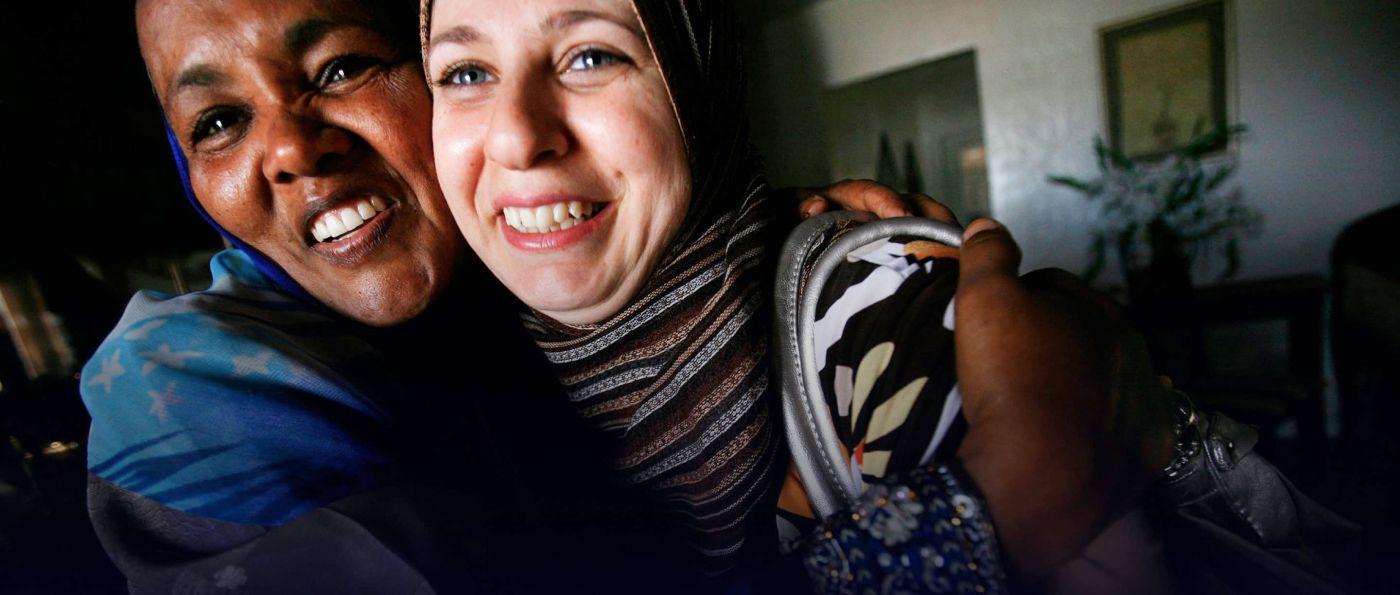Sponsor Ukrainians through Uniting for Ukraine
Through Uniting for Ukraine, American sponsors provided safety and community to newcomers fleeing violence and persecution.

Please note:
The U.S. government has ended the Processes for Cubans, Haitians, Nicaraguans, and Venezuelans (CHNV) and paused the Uniting for Ukraine and Welcome Corps private sponsorship programs. Americans cannot submit new sponsorship applications, and existing applications will not be processed.
- Learn more about how this impacts newcomers and sponsors.
- Sign up for ongoing policy updates from Welcome.US.
Latest Updates
What impact will policy changes have on newcomers, refugees, and sponsorship programs? Check out our latest explainers to learn more.
Sponsorship FAQs
What’s the latest on U4U?
As of Jan. 28, 2025, the U.S. government has paused the Uniting for Ukraine (U4U) program. No new U4U applications are being accepted, pending cases won’t be processed, and no new travel authorizations are being issued.
In Aug. 2025, U.S. Citizenship and Immigration Services (USCIS) resumed processing U4U renewal (re-parole) applications for Ukrainians who are here in the U.S. Ukrainian newcomers who have already arrived in the U.S. via U4U may be eligible for re-parole. However, the pause on new U4U applications for Ukrainians outside of the U.S. is still in place. For more information, see this guidance by the Ukraine Immigration Task Force on how to submit a re-parole application and when to consider expedited processing.
If your U4U beneficiary is still awaiting a renewal for parole or work authorization, we encourage you to contact your congressional representative and submit a constituency request for their staff to file a congressional inquiry to USCIS checking on the status of their case. You can reference our contact your representative guide to learn how to submit this request.
To understand eligibility for alternative legal status options, check out our guide to alternative legal options for humanitarian parolees and seek legal advice from an immigration attorney.
What happens to my pending application or approved sponsorship if the newcomer hasn’t arrived yet?
With the pause of the U4U program and the end of the CHNV program, pending applications or approved sponsorships for newcomers that have not arrived will not be processed.
These programs are not accepting new applications, pending applications will not be processed, and no new travel authorizations are being issued. We are closely monitoring official updates and will share further information as it becomes available.
If you have questions about a specific case, you can ask your congressional representatives to follow up directly with USCIS on your behalf. Use our guide for information on how.
How does the pending lawsuit related to the termination of parole affect the CHNV or U4U newcomer I sponsored?
We are tracking the Doe v. Noem lawsuit that challenged the U.S. government’s actions to end humanitarian parole processes including CHNV and U4U. We will provide updates once a final order is made. For more up-to-date information, you can follow the case here.
Stories of Welcome
Americans across 12,000 zip codes in all 50 states changed lives through sponsorship.



Stories of Welcome
'If every church could sponsor just one person… what a difference it could make.'
September 03, 2024
JOIN OUR WELCOMING COMMUNITY
Sign up for updates about Welcome.US, policy changes impacting newcomers and how you can get involved.

